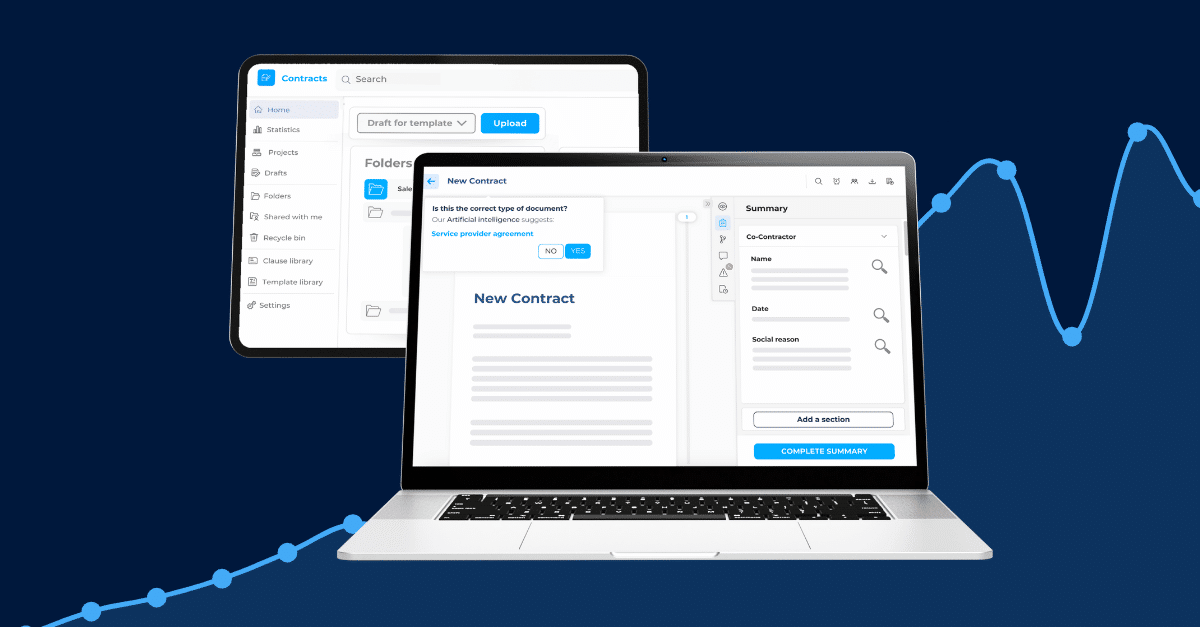Legal KPIs empower legal departments to measure and demonstrate their value by tracking efficiency, financial performance, risk management, and alignment with business goals. By implementing the right metrics and leveraging integrated legal management solutions, legal teams can optimize resources, improve service delivery, and transform from cost centers into strategic business partners.
In today’s data-driven business environment, legal departments face increasing pressure to demonstrate their value and contribution to organizational success. Legal Key Performance Indicators (KPIs) have emerged as critical tools for measuring efficiency, effectiveness, and strategic impact of legal operations. These metrics enable legal teams to quantify their performance, identify areas for improvement, and align their activities with broader business objectives.
For in-house legal departments and law firms alike, establishing the right KPIs provides a framework for making informed decisions, optimizing resources, and enhancing client satisfaction. This article explores the most important legal KPIs, their implementation, and how they transform legal operations from cost centers to strategic business partners.
Why Legal KPIs Matter
The role of legal departments has evolved significantly in recent years. No longer viewed merely as cost centers, modern legal teams function as strategic advisors and business enablers. This transformation necessitates a shift in how legal performance is measured and evaluated.
Legal KPIs bridge the gap between legal operations and business objectives by providing quantifiable metrics that demonstrate the department’s contribution to organizational goals. They offer a common language through which legal teams communicate their value to leadership, justify resource allocation, and identify opportunities for operational enhancement.
10 Essential Legal KPIs Every Department Should Track
To drive performance and demonstrate their strategic value, legal departments need clear metrics to guide decision-making. The following categories highlight the most essential KPIs every team should monitor, starting with workload management.
Workload Management Metrics
Understanding the volume and distribution of legal work forms the foundation for effective resource planning. Key metrics in this category include:
These metrics help legal leaders balance workloads, identify bottlenecks, and ensure appropriate staffing levels across the department.
Financial Performance Metrics
Financial KPIs provide insights into how effectively the legal department manages its budget and contributes to the company’s financial health:
Tracking these metrics enables legal teams to control costs, negotiate better terms with external providers, and demonstrate fiscal responsibility to company leadership.
Efficiency Metrics
Efficiency KPIs measure how quickly and effectively the legal department completes its work:
These metrics highlight process inefficiencies and opportunities for streamlining workflows, ultimately improving service delivery to internal clients.
Risk Management Metrics
Effective risk management remains a core function of legal departments. Relevant KPIs include:
By tracking these metrics, legal teams better protect their organizations from potential liabilities and demonstrate their preventative value.
Outside Counsel Management Metrics
For organizations working with external law firms, these KPIs help optimize relationships and expenditures:
These metrics support data-driven decisions about which firms to engage for specific matters, resulting in better outcomes and more cost-effective partnerships.
Implementing an Effective Legal KPI Program
Successfully implementing legal KPIs requires thoughtful planning and execution. It begins with a clear understanding of your organization’s priorities. Whether your focus is on reducing costs, mitigating risks, or improving service speed, identifying objectives that align with broader business goals is essential. This clarity ensures that every KPI you select directly supports what matters most to your organization.
Once the objectives are defined, selecting relevant metrics becomes the next critical step. It is important to choose indicators that directly reflect these objectives while keeping their number manageable. Limiting the scope of your KPIs prevents data overload and helps your legal team stay focused on the indicators that truly drive performance.
Establishing reliable data collection processes is equally crucial. Consistent and accurate data is the foundation of any meaningful KPI program. Leveraging legal management software can significantly simplify this task by automating data capture and reporting, which reduces the administrative burden on your team and enhances data accuracy.
Finally, setting baselines and performance targets allows your team to measure progress effectively. Analyzing historical data helps establish realistic benchmarks, while setting ambitious yet attainable goals encourages continuous improvement without creating unrealistic expectations. Together, these steps create a structured approach to building a KPI program that delivers actionable insights and measurable impact.
Overcoming Challenges in Legal KPI Implementation
While the benefits of tracking legal KPIs are substantial, implementation often presents challenges.
Data Quality Issues
Many legal departments struggle with incomplete or inconsistent data. Addressing this challenge requires standardizing data entry procedures and investing in systems that facilitate accurate information capture.
Balancing Quantitative and Qualitative Measurements
Not everything of value can be reduced to numbers. Effective KPI programs complement quantitative metrics with qualitative assessments, particularly for aspects like client satisfaction and quality of legal advice.
Stakeholder Alignment
Different stakeholders—from general counsel to business unit leaders—often have varying priorities. Successful KPI programs address these diverse perspectives by including metrics relevant to each key stakeholder group.
Best Practices for Legal KPI Success
To maximize the impact of your legal KPI program, consider these proven best practices.
Regular Review and Refinement
KPIs should evolve as your department’s goals and challenges change. Schedule quarterly reviews to assess whether your metrics still provide actionable insights and adjust as needed.
Effective Visualization and Reporting
Present KPI data in clear, accessible formats that highlight trends and exceptions. Dashboards that display real-time information enable proactive management and timely interventions.
Technology Integration
Modern legal management solutions automate data collection and analysis, reducing the administrative burden of KPI tracking. These platforms integrate with existing systems to provide comprehensive visibility across all legal operations.
Legal departments using integrated management software report significantly higher satisfaction with their KPI programs compared to those relying on manual tracking methods. These solutions transform raw data into actionable insights, enabling legal teams to make informed decisions about resource allocation, process improvements, and strategic initiatives.
The Strategic Value of Legal KPIs
Legal KPIs do more than measure performance—they transform how legal departments operate and contribute to business success. By implementing thoughtful metrics, legal teams:
The most successful legal departments use KPIs not simply as performance measures but as strategic tools that guide continuous improvement and enhance their role as business partners.
Transforming Legal Operations Through Metrics
In today’s competitive business environment, legal departments must operate with the same efficiency and accountability as other business functions. KPIs provide the framework for this transformation, enabling legal teams to:
For general counsel and legal operations professionals, implementing effective KPI tracking represents an opportunity to elevate the strategic importance of legal services within their organizations.
As legal departments continue to face pressure to do more with less, KPIs offer a path forward—providing the insights needed to improve efficiency, demonstrate value, and align legal operations with business success. By selecting the right metrics, establishing reliable measurement systems, and acting on the resulting insights, legal teams position themselves as essential strategic partners in achieving organizational objectives.



